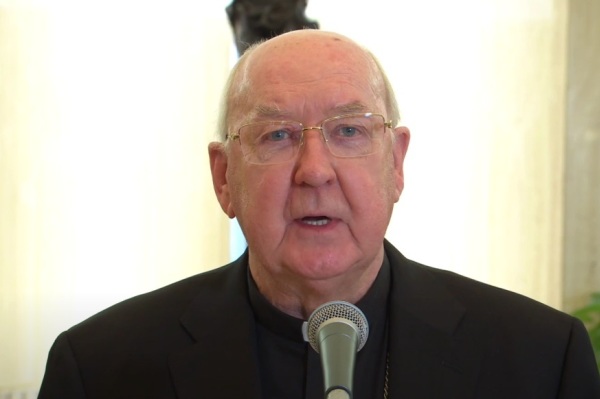Sudan Faces Permanent Humanitarian Emergency, Warn Relief Groups
Poverty and suffering in Sudan's Darfur region and in south Sudan are at such high levels that there is a permanent humanitarian crisis there, according to a confederation of 162 Catholic relief, development and social service organizations.
Insecurity both in Darfur and in south Sudan risks further destabilizing the region and creating greater levels of suffering, warned Caritas Internationalis ahead of a meeting of leaders at its Vatican-based headquarters this week.
"Sudan faces a lot of challenges," Catholic Bishop Eduardo Kussala of Tombura Yambio commented. "There is an ongoing humanitarian crisis. People don't have access to healthcare, education, water and protection from high levels of violence."
Since rebel groups took up arms against the government in Darfur in 2003, up to 300,000 people have died and 2.7 million have fled their homes, with many now living in camps.
In south Sudan, meanwhile, malnutrition is at 16 percent, nine out of ten people live on less than $1 a day, and the maternal mortality rate the highest in the world in 2007 – with 2,030 women dying per 100,000 births.
Despite the apparent need for relief, Sudan ordered 13 of the largest international aid groups to leave the country in early March, accusing them of cooperating and giving false testimony to the International Criminal Court.
Last Thursday, however, the U.N. humanitarian chief said the Sudanese government is allowing four of the expelled aid organizations to return under slightly different names.
John Holmes, the undersecretary-general for humanitarian affairs, also reported that there are still risks of "another extra humanitarian disaster" in Darfur, particularly in the rainy season and with the hunger gap season.
"We need to be very vigilant ... and make sure the live-saving gaps are filled," he said.
Starting Monday, Catholic Church leaders from Sudan, Caritas members providing support to the vulnerable on the ground, and donors will be meeting for two days to discuss how to improve a coordinated humanitarian response.
"The Sudan Partnership Forum meeting aims to create a common strategy for Caritas members and its Church partners so that we deliver aid in the most effective way," explained Bishop Kussala.
Currently, Caritas is providing 297,000 people in Darfur with food, shelter, clean water, healthcare, support for livelihoods, counseling, peace-building activities and education.
According to Kussala, Caritas and the Church are the only sources of education, health and social services in many places.






















